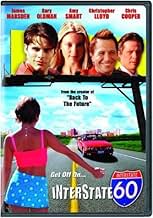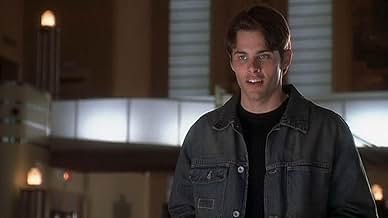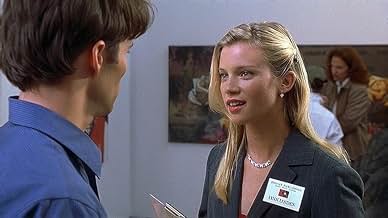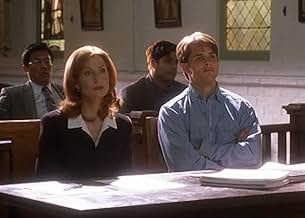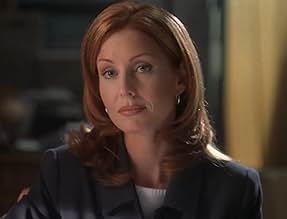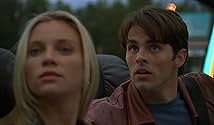Neal Oliver, a very confused young artist, takes a journey of a lifetime on a highway that doesn't exist on any map, going to places he's never heard of, searching for an answer and his drea... Read allNeal Oliver, a very confused young artist, takes a journey of a lifetime on a highway that doesn't exist on any map, going to places he's never heard of, searching for an answer and his dream girl.Neal Oliver, a very confused young artist, takes a journey of a lifetime on a highway that doesn't exist on any map, going to places he's never heard of, searching for an answer and his dream girl.
- Awards
- 2 wins & 5 nominations
- Warehouse Worker
- (as John Canavan)
- Director
- Writer
- All cast & crew
- Production, box office & more at IMDbPro
Storyline
Did you know
- TriviaDespite its all-star cast and Academy Award-nominated writer and director, this went direct-to-video.
- GoofsSeconds after Neal wakes up in the hospital after being knocked cold, clearly disoriented and unsure where he is, his sister comes in. He tells her the doctors want to "keep me overnight, to log some tests in the morning." How does he know this?
- Quotes
Bob Cody: Ever hear of Frederick Turner, Mr. Oliver?
Neal Oliver: No, sir.
Bob Cody: Well, he was an historian. About a hundred years ago he came up with a theory about the frontier. He said the frontier was a safety valve for civilization, a place for people to go to keep from goin' mad. So, whenever there were folks who couldn't fit in with the way things were, nuts, and malcontents, and extremists, they'd pack up and head for the frontier. That's how America got started - all the crackpots and troublemakers in Europe packed up and went to a frontier which became the thirteen colonies. When some people couldn't fit in with that, they moved farther west, which is why all the nuts eventually ended up in California. Turner died in 1932, so he wasn't around long enough to see what would happen to the world when we ran out of frontier. Some people say we have the frontier of the mind, and they go off and explore the wonderful world of alcohol and drugs, but that's no frontier. It's just another way for us to fool ourselves. And we've created this phony frontier with computers, which allows people to, you know, think they've escaped. A frontier with access fees?
Neal Oliver: What about space? You know, the final frontier!
Bob Cody: Ah, Star Trek isn't space. That's television - fine fuckin' frontier that is. Besides, how many folks can just pack up and go to space?
- Crazy creditsThe end credits testify "No computer or miniatures were used to create or enhance the destruction of any vehicles in this movie".
- ConnectionsFeatured in The Making of 'Interstate 60' (2003)
- SoundtracksBroken Heart For Sale
Written and Performed by Heather Myles
Published by Happy Valley Music (BMI)
Courtesy of Rounder Records
By Arrangement with Ocean Park Music Group
People looking for "Interstate 60: Episodes of the Road" may have just as hard a time looking for the movie itself, as it was not theatrically released, has not been released on DVD, but continues to circulate around small theaters and film festivals since 2002, in search of more eager viewers who will no doubt be both surprised and inspired by the film's truthfulness and sense of morals.
Yet "Interstate 60" plays like anything but a Surgeon General's warning. It isn't as openly strict or hard-nosed. It has a sort of subtle warning inside it that lets the viewer decide what it is about. It's a film that stays with you after it's over, and that's a rare thing these days.
It all starts with a rich kid named Neal Oliver (James Marsden, "X-Men"). Neal's 22nd birthday has just arrived, and with it a shiny-red BMW sports car, with the license plate specially modeled after his father's own personal motto. In fact, the entire convertible seems to be modeled after Neal's father's own tastes. "I woulda killed to have something like this when I was your age," his dad mutters. We have a feeling he really would have, too.
Neal makes a wish for his birthday, to find a meaning to his life. It is overheard by an odd man named O.W. Grant (full name: One Wish Grant), who decides to grant Neal his wish - by sending a painter's bucket flying from above, only to come to a stop on Neal's skull.
Out of it for a while, Neal wakes up again and finds his perception noticeably different. He notices things he never noticed before; his senses are more acute. A strange doctor named Ray (Christopher Lloyd) explains a thing or two about perception and blindness to Neal, before Neal finds out there is no doctor on the staff at the hospital named Ray (though that seems a bit odd, don't you think?).
Neal meets Ray again in a skyscraper, where Ray gives Neal a job to transport a small briefcase to Denvar (yes, DenVAR), a small town located along I-60. Neal reluctantly agrees to go on this journey in hopes of finding a girl he can't rid his mind of, and so he finally locates this nonexistent highway. Along his journey he once again meets O.W. Grant (Gary Oldman), as well as Laura (Amy Jo Johnson), a woman seeking as much sex as possible; a cop (Kurt Russell) in a small drug-infested town; an ex-advertising agent played by Chris Cooper; and finally he finds the girl of his dreams (literally), Lynn (Amy Smart). Along his journey, Neal comes to terms with himself and who he really is, and though this is predictable the way the film gets the message across is more than ingenious.
The writer and director of the film is Bob Gale, the man most people will always remember as the creator and sole writer of the three "Back to the Future" films. Gale tried his hand at directing a few times, including the 1995 "interfilm" called "Mr. Payback," which I have not seen but have heard is a supposedly horrid excuse for a film. "Interstate 60" is not - it is a cleverly-written little film that avoided being released into the mainstream, and for a reason: It didn't want to become Hollywoodized. It hasn't. And it shows.
"Interstate 60" is unmistakably a low-budget film, but it is all the better for it. It has some important messages that really should be seen by everyone. In a time when films like "Gigli" are invading the film market, this is a breath of fresh air, a step towards a better side of film-making, a side with morals for today's youth and future generations.
There are some great messages in this film, it's a shame that the majority of moviegoers and families seeking quality films will never even see this film, much less hear about it.
- MovieAddict2016
- Sep 19, 2003
- Permalink
- How long is Interstate 60?Powered by Alexa
Details
Box office
- Budget
- $7,000,000 (estimated)
- Gross worldwide
- $8,449
- Runtime1 hour 56 minutes
- Color
- Sound mix
- Aspect ratio
- 1.85 : 1
Contribute to this page




